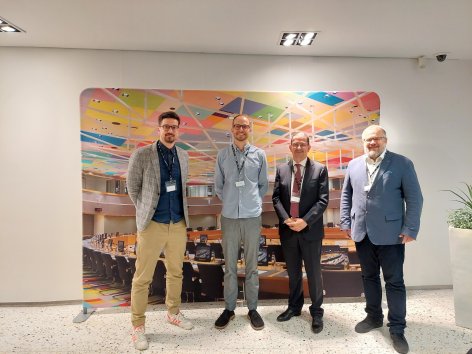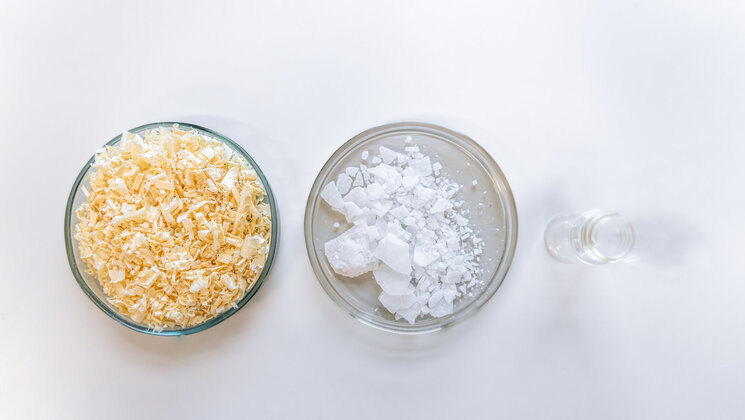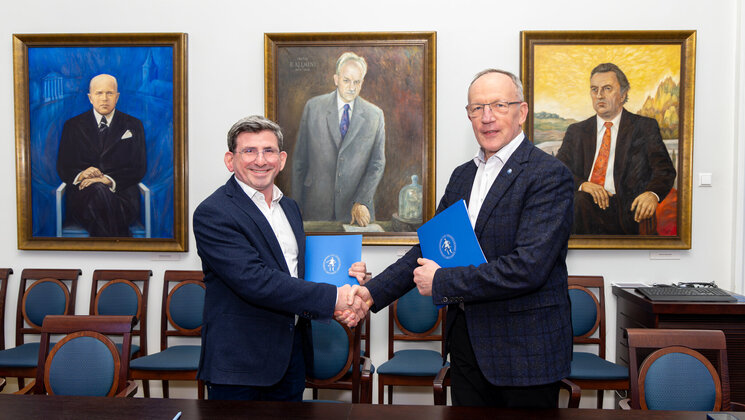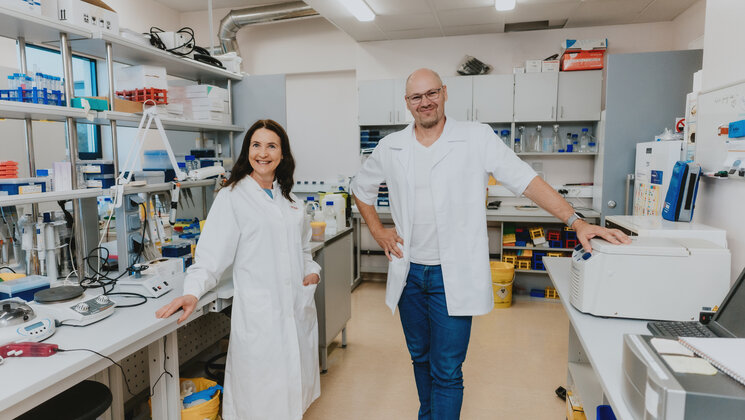Consortium led by the University of Tartu received €30 million to upgrade the Estonian Centre for Biosustainability to a hub of digital biology

The R&D centre led by the University of Tartu will combine synthetic biology with digital technologies to facilitate big data-driven design of cells for the bio-industry, boosting both research and the development of new businesses based on industrial biotechnology. The centre that is developed in cooperation with Tallinn University of Technology and the Technical University of Denmark received €15 million from the European Commission, with another €15 million invested by the Estonian state.
According to Mart Loog, Professor of Molecular Systems Biology at the University of Tartu and the head of the DigiBio consortium, the modern technological capacity to collect biological data has increased data volumes many times faster than they can be analysed and used in research. Such big data include, for instance, genome sequences or data on genome engineering and synthesis. Synthetic biology (SynBio) is a multidisciplinary area of research that seeks to create new biological parts, devices, and systems, or to redesign systems that are already found in nature. For example, microorganisms are redesigned to produce chemicals and biomaterials to help us break our dependence on petrochemicals.
To achieve a quality leap both in the research in this field and in the bioindustry, we need to accelerate cell design by combining biology experiments producing big data with IT tools that can process big data, learn from them and create designs for new cells.
"To achieve a quality leap both in the research in this field and in the bioindustry, we need to accelerate cell design by combining biology experiments producing big data with IT tools that can process big data, learn from them and create designs for new cells," explained Loog.
This is exactly what is targeted by upgrading the Estonian Centre for Biosustainability. A digitalised and robot-assisted laboratory unit for building cell systems – a biofoundry – will be set up, linked to IT units for software development, big data processing and machine learning. According to Loog, the design of bio-systems is similar to all engineering, which uses design-build-test-learn (DBTL) cycles. For example, by feeding exhaust gases to specially modified acetogenic bacteria, it is possible to produce fuels or other feedstock essential to the chemical industry. So far, improving the productivity of these bacteria has required manual creation or search for suitable gene mutations.
Digitalisation would enable using machine learning to find the best combinations and make learning from biological data and creation of superior cells based on these data much faster and more efficient.
Digitalisation would enable using machine learning to find the best combinations and make learning from biological data and creation of superior cells based on these data much faster and more efficient. "This is basically a highly accelerated biological evolution, enhanced by rational design through IT and the engineering cycle," explained Loog.
The second major activity of the centre will be industrial biotechnology and the development of big data-related IT start-ups. The aim is to combine Estonia's world-class IT sector with the scientific excellence in synthetic biology available here. According to Loog, the digitalisation of synthetic biology is a field that develops very fast, creating opportunities for developing digital solutions for the biotech sector. The new business accelerator to be created alongside the centre will help cutting-edge research to reach the economy. "A new wave of IT enterprises based specifically on the processing of big data used in the bioindustry has already begun worldwide. Our R&D centre, coupled with an already strong IT sector in Estonia, will provide an excellent platform for this," said Loog.
As an external partner, the consortium includes the Novo Nordisk Foundation Centre for Biosustainability of the Technical University of Denmark (DTU Biosustain), which has a unique global expertise and already functioning workflow in the digitalisation of biotechnology. Professor Lars Nielsen, Chief Technical Officer of the DTU Biosustain recognises the strong Estonian IT community and looks forward to working with the partners on developing a novel framework for digital biology. "We expect this collaboration to greatly help the non-profit Global Biofoundry Alliance community to adopt and advance data science in bio-based design and production. Ultimately, this will support the development of biosustainable solutions for many challenges faced by society," said Nielsen. Mart Loog added that they will also apply the Danish model in Estonia, thereby becoming part of a global network that deals with big data in biology and automated engineering of cell systems. “This level of international networking also opens up excellent opportunities for the local biotech research and business sectors to support the goals of the European Green Deal,” said Loog.
This level of international networking also opens up excellent opportunities for the local biotech research and business sectors to support the goals of the European Green Deal.
The centre brings together almost all of Estonia's synthetic biology expertise, involving the biotechnology teams of Tallinn University of Technology as partners. According to Petri-Jaan Lahtvee, Tenured Associate Professor at the Department of Chemistry and Biotechnology of Tallinn University of Technology, the new automated platform will open up opportunities for both research and cross-sectoral collaboration, as it will be accessible to all Estonian universities and biotech companies.

From the left: Petri-Jaan Lahtvee, Kaspar Valgepea, Lars Nielsen, Mart Loog. Source: Private collection
Synthetic biology research in Tartu has strong international impact. Its development has been supported by a prestigious grant from the European Research Council and grants from the European Commission to promote research and teaching in synthetic biology (ERA Chair SynBioTEC) and gas fermentation technology (ERA Chair GasFermTEC). "It is in the framework of these projects that the foundation for the Estonian Centre for Biosustainability was laid. The major project about to start will allow the centre to fully develop and leverage both research activities in the field and knowledge transfer," said Loog. The R&D centre developed in Tartu is the first of its kind in the Baltics and support the development of the bioeconomy and the achievement of climate goals across Europe.
Teaming for Excellence is a funding action under Horizon Europe, the EU Framework Programme for Research and Innovation, which supports cooperation between European research institutions to improve research and innovation capacity and increase the competitiveness of the region's economy. The project will start in the course of 2023 and will run for six years.






